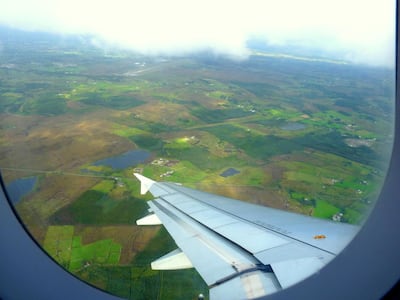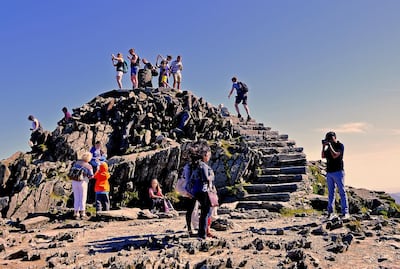The world came together this weekend as millions of people inspired by Greta Thunberg took to the streets to protest climate change. In what is likely the biggest single-day climate protest in history, an estimated four million people took to the streets.
In New York, over 300,000 demonstrated for climate change and in Berlin there were an estimated 270,000 strikers. In cities across the world, from Kolkata to Seoul and Adelaide to Dakar, people were out in force. Over 6,000 events took place in over 1,000 cities across 185 countries around the world fuelled by what has been dubbed the 'Greta effect'.
This effect has also caused a dip in air travel in some Scandinavian countries, an increase in rail travel across Europe and a noticeable shift in the attitudes of people around the world who are now coming to terms with the climate change crisis. In response, many travellers are now looking for greener ways to holiday to lessen the impact of upcoming travel on the planet.
What is green travel?
Green travel, sustainable tourism or environmental-friendly trips all essentially mean travelling in a way that does less damage to the planet than traditional travel does.
There are various differences in scale between each term, but they are all fundamentally about protecting the environment of the places people are visiting and reducing the impact that our trips have on the planet.
Why go green?
Sixteen-year-old Greta Thunberg has successfully got more people to care about the environment than ever before. Flight shaming, or flygskam, has been one of the key ideas at the heart of Thunberg’s work and travellers are more conscious than ever before of the environmental footprint of their flights.
While Thunberg recently sailed across the Atlantic to New York on an emission-free yacht, that option is not accessible to everyone meaning air travel is still very much a major part many people's holiday plans. But that's not to say you can’t travel more greenly. From reducing your flight emissions to booking greener accommodation, here are five simple ways to lower your travel footprint.
How to reduce your travel footprint

1. Cut out one flight per year
If everyone who travels ditches one flight per year from their current schedule the planet would be in a much better position. Now, that’s not to say that you need to ditch your annual summer holiday. Instead, cut-down on flights that you take for short trips where there are other viable ways of getting there. Venturing to Oman? Pack the family in the car. Looking for a place to this winter? As a flourishing port destination, Dubai has plenty of cruises to offer. Heading to Europe for a few weeks? Make the flights that gets your there the only one you take then travel between cities by bus, train or boat.
When you do fly, know your impact. The majority of aviation emissions occur on flights travelling over 1,500 kilometres, primarily because there’s often no other viable alternative to get to these places within the same time-frame or for a similar price. If you’ve got a long distance flight coming up, reduce your footprint by opting for a credible carbon offsetting.
The basic idea behind this is that you can compensate for the greenhouse gases from your flight by helping fund projects that reduce emissions. There are countless offsetting programmes out there but not all of them are regulated. Check Green-e or The Climate Action Reserve to find out more about which offsetting programs support projects with serious carbon sucking power.
2. Reduce water waste
Take your own refillable water bottle with you when you travel. As long as this is empty when you go through airport security, you’ll be allowed to bring your bottle on board. Most flights also have drinking stations in the galley so you can then fill up your bottle in-flight. If you’re travelling to a country where water is not considered safe to drink, you can get a bottle with a built-in filter or purifier so you can still safely fill up as you go.
In your hotel, as inviting as that huge tub might seem, opt for showers instead of baths and re-use hotel linens and towels. If you’re in a country where water isn’t as freely available as it is back home, make a conscious effort to reduce your water usage by avoiding bad habits like leaving the water running when you’re brushing your teeth. As a traveller in a hotel you often don’t feel the impact of water scarcity, but your actions can have real knock-on effects for the local community.
3. Book greener hotels
Most people book their hotels based on location, price and amenities. Add green credentials to your hotel search to help reduce your travel footprint. Make use of sites that list environmental friendly hotels and accommodation around the world.

Check out resources like the Green Hotel Association, Book Different, Ticati and Ecobnb – the sustainable alternative to Airbnb, to find places to stay where the environment is high on the agenda. Keep in mind that each site has its own guidelines for rating properties, so do your own research to make sure the hotel fits the standard your looking for.
Another good way to find credible environmentally-focused hotels is by checking out which properties have been awarded official green accreditation like those listed by Green Globe or Green Key.
4. Go local
Try to make sure all of your souvenir shopping is done locally, rather than purchasing goods that have been flown or shipped in. Not only does this support the local economy, it lets you take something that’s genuinely native to the place you’ve travelled to back to your friends and family.

If you’re not sure if something is locally made, ask. Often cheaper replicas of native goods are imported by bigger companies trying to cash in on tourists' cash dollars. That being said, while searching for local buys, be mindful that you don’t purchase anything made from endangered animals or plants.
The same goes when it comes to eating out. Venture out of your hotel or resort to dine in the local cafes and restaurants. Not only are you supporting the community that you're visiting, you’re likely to be served food that’s more representative of the country and there’s a higher chance that the ingredients used will be locally sourced.
5. Sight-see responsibly
If you're planning to book a tour or a guided day out, try to book with a local company or an agency who can guarantee that someone local will be guiding you. As well as funding the community that you’re holidaying in, local guides often come armed with much more insider knowledge than those flown in for the job, so it's a win-win situation.
There are various places to track down green tours and activities, try Travganic or the non-profit Ethical Traveller. You can also book entire holidays where conservation is the focus.
Be aware of places that are in danger of being ruined by overtourism. Instead, research alternative sites in the vicinity and make a beeline there, away from the crowds.




